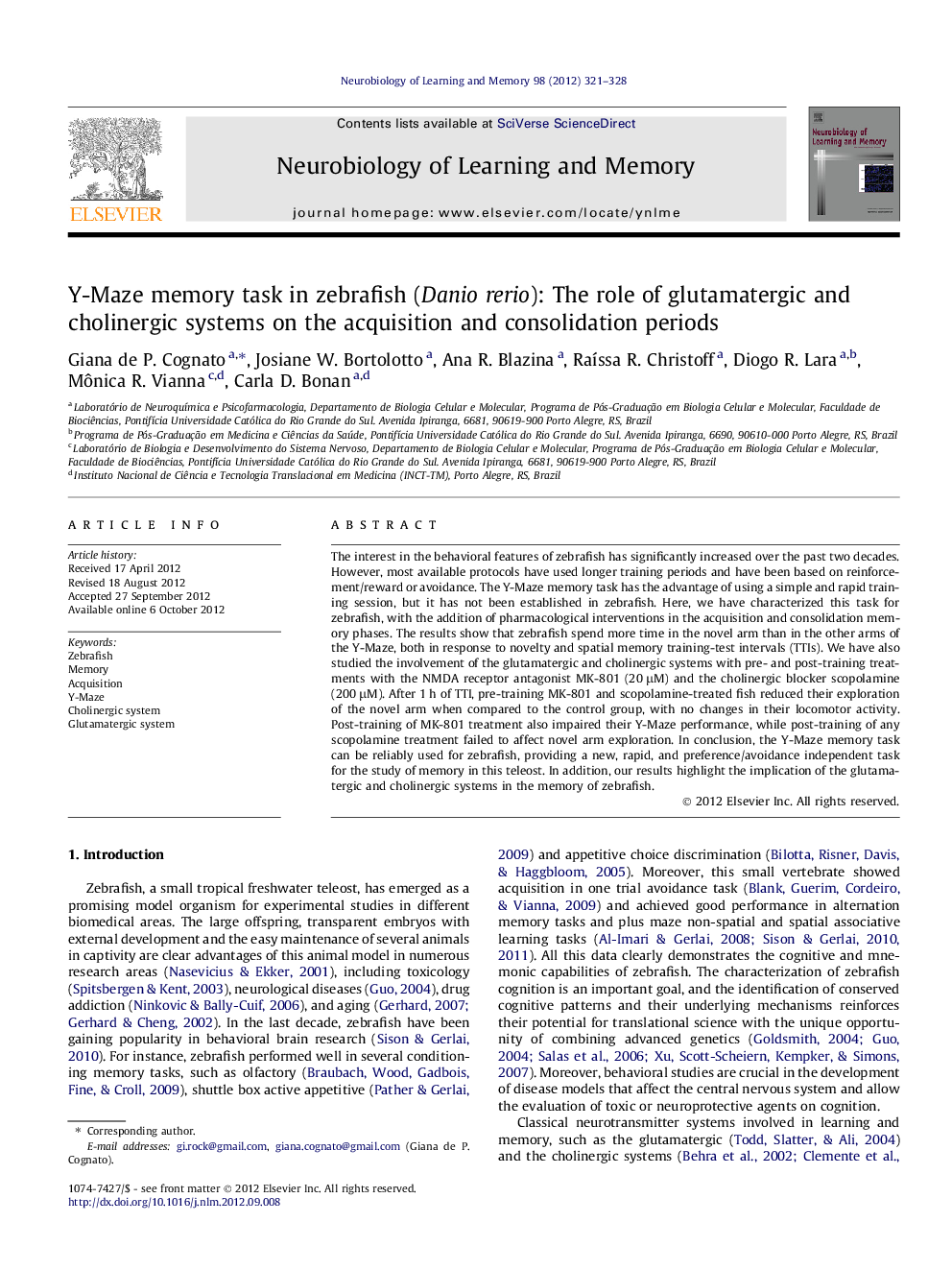| Article ID | Journal | Published Year | Pages | File Type |
|---|---|---|---|---|
| 936671 | Neurobiology of Learning and Memory | 2012 | 8 Pages |
The interest in the behavioral features of zebrafish has significantly increased over the past two decades. However, most available protocols have used longer training periods and have been based on reinforcement/reward or avoidance. The Y-Maze memory task has the advantage of using a simple and rapid training session, but it has not been established in zebrafish. Here, we have characterized this task for zebrafish, with the addition of pharmacological interventions in the acquisition and consolidation memory phases. The results show that zebrafish spend more time in the novel arm than in the other arms of the Y-Maze, both in response to novelty and spatial memory training-test intervals (TTIs). We have also studied the involvement of the glutamatergic and cholinergic systems with pre- and post-training treatments with the NMDA receptor antagonist MK-801 (20 μM) and the cholinergic blocker scopolamine (200 μM). After 1 h of TTI, pre-training MK-801 and scopolamine-treated fish reduced their exploration of the novel arm when compared to the control group, with no changes in their locomotor activity. Post-training of MK-801 treatment also impaired their Y-Maze performance, while post-training of any scopolamine treatment failed to affect novel arm exploration. In conclusion, the Y-Maze memory task can be reliably used for zebrafish, providing a new, rapid, and preference/avoidance independent task for the study of memory in this teleost. In addition, our results highlight the implication of the glutamatergic and cholinergic systems in the memory of zebrafish.
► Zebrafish showed high exploration of the novel arm in the Y-Maze task. ► Recognition of the Y-Maze novel arm decreased 3/6 h after training. ► Glutamatergic system is crucial for Y-Maze memory formation and consolidation. ► Cholinergic system is important to Y-Maze memory formation but not consolidation. ► This Y-Maze task protocol is suitable to study memory in zebrafish.
